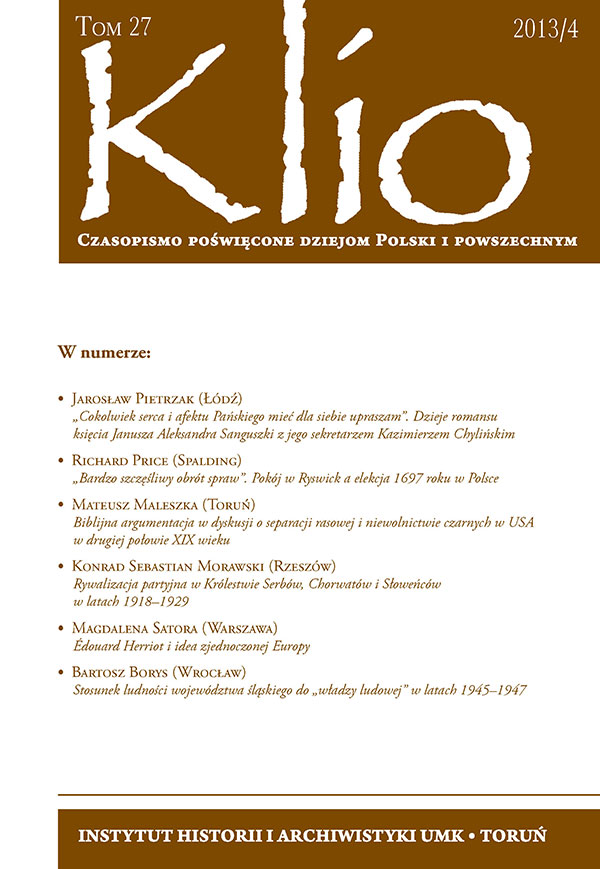Rywalizacja partyjna w Królestwie Serbów, Chorwatów i Słoweńców w latach 1918–1929
DOI:
https://doi.org/10.12775/KLIO.2013.053Abstrakt
Party Rivalry in the Kingdom of SHS during the Period from 1918 to 1929
(Summary)
This article has addressed issues shaping party rivalry in the Kingdom of SHS between 1918–1929, i.e. from the creation of the first Yugoslav state, being a result of the unification of the Kingdom of Serbia with the SHS state, to the introduction therein a dictatorship by King Alexander I, where a rapidly growing party rivalry was replaced by complete dependency on the wish of the royal court puppet party system. The decision of the King outlawed all political parties from the period of 1918–1929, between which were outlined a complicated system of political horse-trading. Special position in the parliament was assumed by the Nikola Pašić People’s Radical that supported the centralist model of political system of the Kingdom of SHS, and thus made it the favoured party of the royal court and despite of a lot of arousing controversy over the election law ensured its participation in most governments of the first Yugoslav state. As a counter to this group, a strong opposition was formed among which the leading role was played by Stjepan Radic’s People’s Peasant Party, which were a group demanding the federalist model of state system, and thus the independence of the Croatian territory of the Kingdom of SHS. The function of the critical players of the Yugoslav party system in the period 1918–1929 was played by the Democratic Party as well as the Independent Democratic Party, which was the result of a rift in the camp of the Democrats. The strength of both groups often determined the potential of the ruling government or coalition. Furthermore, a large number of parties sprang up in the parliament, which in a kind of ideological collage fought for religious issues, agricultural, cultural, regional and political.
Pobrania
Opublikowane
Jak cytować
Numer
Dział
Statystyki
Liczba wyświetleń i pobrań: 1465
Liczba cytowań: 0



